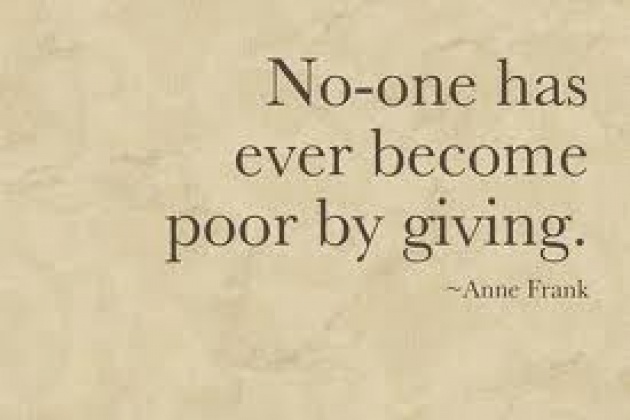
Last Sunday I watched the last episode of "60 Minutes" on CBS, and was inspired by the story of billionaire Paul Tudor Jones, a former stockbroker turned philanthropist. In the 1980s Tudor Jones used to thrive in the ruthless jungle of Wall Street, until he realized that life wasn't just about making money. “There was probably a hole in my soul" he says in the show, "and I didn't really know it at the time. So the lesson that I learned was that there was a whole new journey in my life that was ahead of me that I had not yet even realized was there.” This new journey would bring him in 1988 to create the Robin Hood Foundation, a charity that in the following 25 years would donate more than one and a quarter billion dollars, becoming the biggest supporter of charter schools, job training and food programs in New York City. Tudor Jones strongly believes that improving the public school system is the most important strategy to fight poverty, and the Robin Hood Foundation works tirelessly to provide children in lower income neighborhoods with the tools to achieve a higher level of education. With this type of investment, countless young adults have been able to access a higher income, and get out of the vicious cycle of cultural and social impoverishment. “You cannot have significance in this life if it's all about you" he continues. "You get your significance, you find your joy in life through service and sacrifice. It's pure and simple.” While leading his foundation, Tudor Jones has proved that investing in our young generation will improve the life conditions of the generation that will follow, a concept I find heartwarming and inspirational.
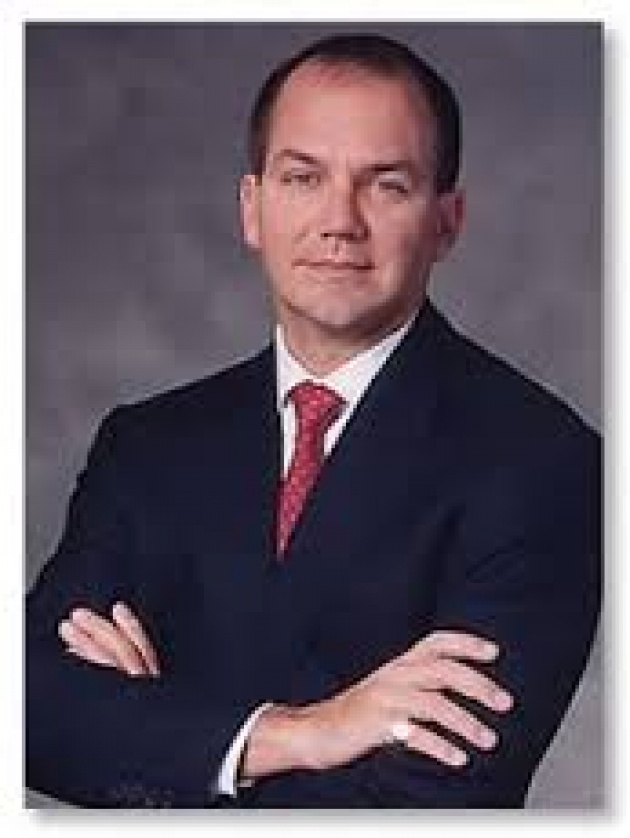
After watching Paul Tudor Jones on 60 Minutes, I couldn't help thinking about the story of another inspiring man: Scott Jackson. An authority in global philanthropy and fundraising, Scott Jackson has been nominated President and CEO of Global Impact, one of the leading global organizations for international philanthropy. Despite this most recent promotion, life for Jackson wasn't always easy. Growing up in Kansas in an interracial family wasn't a piece of cake. Those were the 1960s, when respect and cultural tolerance were still being debated in the boiling pot of the civil rights movement. Nevertheless, Jackson treasured his life experience, and managed to use it at his own advantage. After several visits to underdeveloped countries, he matured a passion for other cultures, and started working for the improvement of the conditions of those who were less fortunate. After working for other charity organizations, including the Program for Appropriate Technology and Health (PATH), World Vision US, and ONE: The Campaign To Make Poverty History, he landed at Global Impact, a true leader in raising funds to meet critical humanitarian needs around the world.
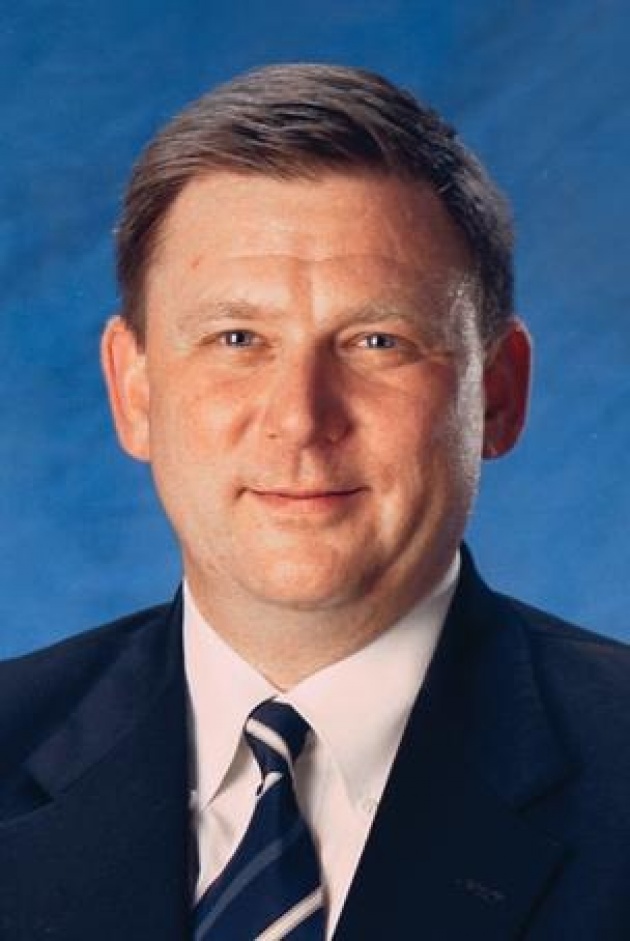
Global Impact is a highly regarded organization, both for its integrity and for its effectiveness. It operates in underprivileged areas as well as locations hit by catastrophes and/or conflicts, catering the poorest and the most disadvantaged people in the world. Global Impact delivers a wide range of humanitarian services, including feeding the hungry; providing prenatal care and education for expectant mothers; supplying clean water, medicines, and disease prevention programs; and building schools and training teachers. In the words of the new President and CEO: "We provide funding to more than 70 of the top U.S.-based international charities that work at the local level in developing countries, including UNICEF, World Vision, Ashoka, CARE, Doctors Without Borders and the Clinton Foundation". Every day this organization distributes funds that affect the lives of countless people around the world, and Jackson will be leading it to a new exciting era.

Scott Jackson was recently interviewed by Captain Edward Zellem, an active duty Navy officer who is now a freelance writer. Zellem is also a correspondent for the Annex Press, the media platform for Film Annex, a company that offers its website as a stage for independent film makers to showcase their work worldwide, and that has recently embarked in a philanthropic journey - the Afghan Development Project - building Internet classrooms in schools in Afghanistan. In the interview, Scott Jackson acknowledges Film Annex work and commitment not only to the education system in Afghanistan, but also to the lives of thousands of young Afghan women and men who will have an additional chance to improve their own professional careers, and consequently the life conditions of their families.
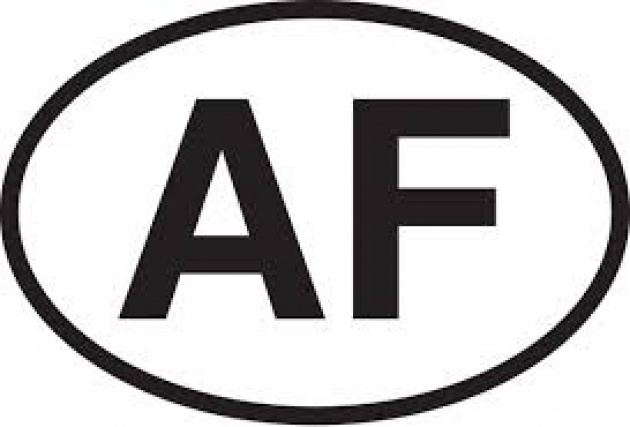
During the next 2 years Film Annex will provide 40 schools in the area of Herat - the third largest city in Afghanistan - with computers, curriculum and training so that 160,000 Afghan girls and boys will be able to connect to the rest of the world, and benefit from the relationships they will build. Film Annex is doing this in collaboration with Citadel of New York, a full-service information technology (IT) solutions provider focused on education and serving the emerging markets of Central Asia. Roya Mahboob - Afghan woman entrepreneur and Citadel's owner - was just nominated by Time Magazine one of the 100 most influential people in the world. 8 schools are already operating, with about 30,000 students being affected. Because of this opportunity, this new generation of Afghans is learning how to become an active part in the global community, increasing not only their chance for a more lucrative life, but also the economy of Afghanistan.

For Francesco Rulli, Film Annex's President and CEO, it's an honor that Jackson mentioned his work in the interview. This can only motivate him to continue his quest in the world of “sustainable philanthropies”. This expression - created and developed by Rulli himself - embraces the concept that in a philanthropic relationship everybody should benefit, both the donors and the beneficiaries. When this happens, the project keeps moving forward without the fear of funds running out. What makes Film Annex unique is the willingness to generate and implement philanthropic ideas that can sustain themselves and continue to do so in the coming future. In the words of Francesco Rulli himself: "The day that Film Annex will not perform at the same level as what it's doing today, the writers and filmmakers working with the company will still move forward in their life and generate substantial return on their work and investment." A philanthropic program that is self-sustainable expects the establishment of a product or service that will be beneficial to all parts involved.
There's only to hope that more entrepreneurs will incorporate this concept in their businesses, so that one day the end of poverty can be finally announced.

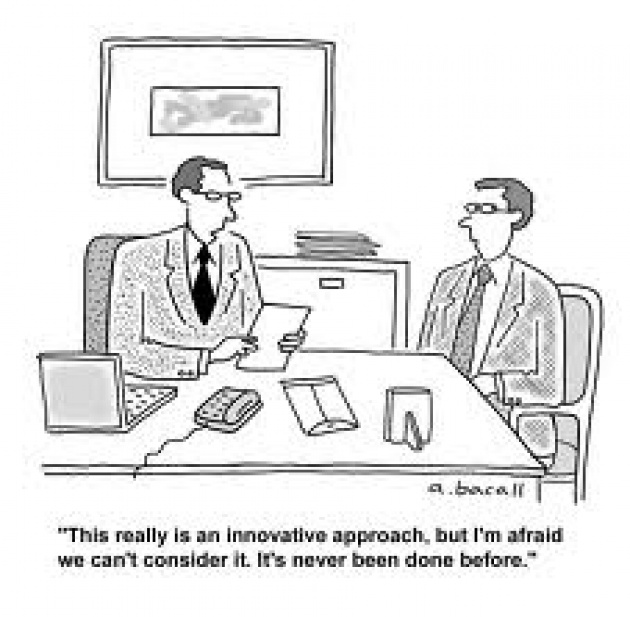
Giacomo Cresti
http://www.filmannex.com/webtv/giacomo
follow me @giacomocresti76



